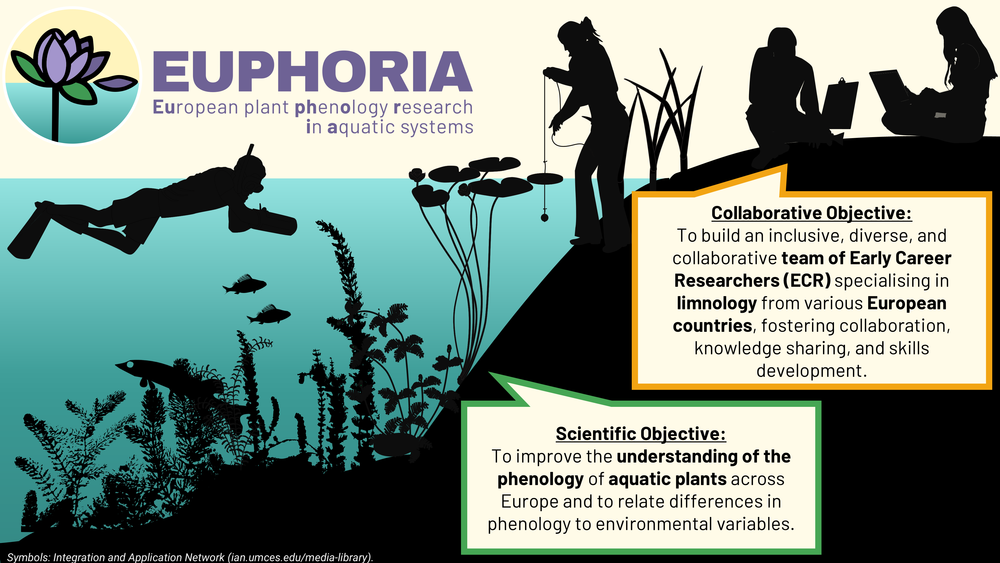EUPHORIA – European plant phenology research in aquatic systems
- Ansprechperson:
- Projektgruppe:
Vegetation
- Förderung:
European Federation for Freshwater Sciences (EFFS) and European Fresh and Young Researchers (EFYR)
- Projektbeteiligte:
Benjamin Misteli (WasserCluster Lunz, Austria), Silvia Cannucci (University of Siena, Italy)
- Starttermin:
01/2025
- Endtermin:
12/2026
Phenological shifts are important indicators of climate change and have consequences for ecosystem functioning for example for pollination. While phenological traits of terrestrial plants and their changes due to climate change have been extensively studied worldwide, there is very little research on aquatic plants, which are important for the functioning of freshwater systems. Knowledge of phenological traits of aquatic plant species is scarce and phenological changes along environmental gradients are still poorly understood. Understanding the phenology of aquatic plants is important for the conservation and management of aquatic systems.
The EUPHORIA (European plant phenology research in aquatic systems) project aims to better understand the phenology of aquatic plants across environmental gradients in Europe. It focuses on two main objectives: (1) To improve the understanding of aquatic plant phenology across Europe and to link phenological variation to environmental variables. (2) To build an inclusive and diverse team of Early Career Researchers (ECRs) specialising in limnology from a broad range of European countries, fostering collaboration, knowledge sharing, and skills development.
To achieve these objectives, we will establish a network of ECRs in limnology throughout Europe. From April to October 2025 we will conduct a field campaign with all the researchers from this network, gathering detailed data on aquatic plant phenology and environmental variables. For this, we will develop a standardised and transferable sampling design to ensure high quality and comparable data. Additionally, we will organise capacity building activities such as workshops and seminars to ensure high quality research. We will analyse the collected empirical data to gain a better understanding of the relationships between phenological data and environmental factors. Furthermore, the research network will plan a citizen science component to broaden the project’s dataset and impact.
This project will provide a deeper understanding of aquatic plant phenology and the ecological implications of shifts in phenology under climate change. The research findings will contribute to predicting how freshwater ecosystems will respond to ongoing climate change and can help to improve management strategies for these ecosystems.

